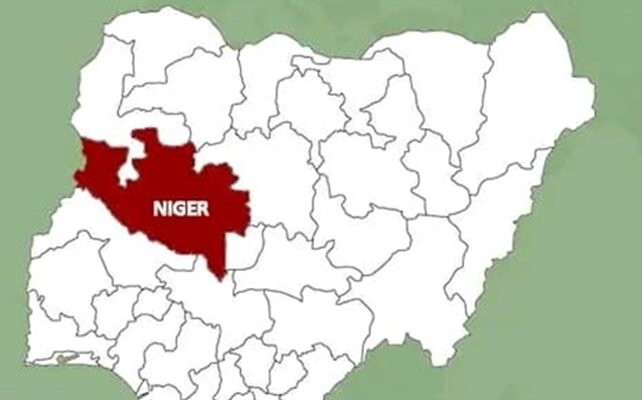The lynching of a woman in Niger State over alleged blasphemy is more than an isolated eruption of mob rage; it is a chilling reminder of Nigeria’s feeble coexistence, its legal dysfunction, and the perilous ease with which human life can be extinguished under the guise of religious passion.
Ammaye, a food seller in Mariga Local Government, met her brutal death not in a distant battlefield, but in the ordinary space of a marketplace. She was no stranger to her killers; she was known to them, one of their own, a Muslim woman, reportedly a relative of the very man with whom the verbal exchange began. Her so-called “crime” stemmed from a quarrel that spiraled into alleged blasphemy. When handed over to authorities by the District Head for due process, the crowd of youths, blinded by fury, overpowered the security personnel, dragged her into their judgment, and stoned her to death.
This was not merely the killing of Ammaye; it was the public lynching of Nigeria’s constitutional order. For in that savage spectacle, due process was mocked, the rule of law was defied, and the sanctity of human life was reduced to rubble.
Reactions have poured in across the country, reflecting anger, disillusionment, and despair. “A struggling food seller… for this country wey life is hard on us all, na em you dey talk of fulfilling Sunnah so that we’ll keep having more beggars on the street? Why not use the energy to empower the other wives?” lamented Aishat Adamu Adnan, decrying both the flimsy pretext of the quarrel and the lawlessness of the mob. Her voice captures the exasperation of many Nigerians: a society quick to shed blood in the name of religion, but powerless against bandits, hunger and poverty.
Sister Mary Tady Tok’s cry was sharper: “Mob overpowered security personnel, and they allow bandits to kill their people anyhow. Nigeria, my country.” Her lament exposes the hypocrisy of a system where mobs are strong against defenseless women but weak before the true threats of terrorism and banditry ravaging the North. Gbenga Adejumo drew the contrast bitterly: “North—Mob is powerful than the security operatives. South—Security operatives are powerful than the mob. It’s well understood.” His words underscore the unevenness of Nigeria’s justice architecture, where geography determines whether law survives.
Muslims themselves have risen to condemn the act. “We Muslims must learn how to tolerate and allow battle for God. Calling someone bad name or insulting is a sin, but its punishment is in the hands of God,” said Herbdulerzeez Bin Hermed. King Yahaya Kazzah echoed that spirit: “Religion is supposed to teach us how to control ourselves and have a moral, respectfully, loving and idyllic society. Not a tool to eliminate one another on the basis of beliefs and norms.”
But it was Umar Bappa Ahmed who went to the heart of the matter, insisting that Islam itself rejects the mob’s violence: “It was very unfortunate. Islam does not permit such an act. If a person was accused of an offense, the person must be taken to court and must be given fair hearing and defense. There is nowhere in Islam where it is permitted to take the law into our hands. Those doing it are ignorants.” His words shine a light on the dissonance between faith as revealed and faith as misapplied.
The Prophet himself, in recorded traditions, responded to insults with patience and wisdom—not mob justice. As Bishop Matthew Kukah once observed, “Our greatest sin as a people is not what we worship, but how we weaponize God against our fellow man.” And yet in Nigeria, faith too often becomes fire, and piety too often becomes pretext for murder.
The cycle of extrajudicial killings in the name of religion has become a familiar Nigerian tragedy—from the murder of Deborah Samuel in Sokoto, to countless unnamed victims across the North. Each time, the script repeats itself: an accusation, a swelling crowd, a helpless victim, and a dead body. Then comes official condemnation, promises of investigation, and silence. Adegeye Victor captured this weariness: “No arrest, no persecution. Same like the Sokoto lady.”
Nigeria must decide whether it will remain a country governed by law or by mobs. This is not a question of Islam versus Christianity, nor North versus South. It is a question of civilization versus chaos. A nation where people can be executed in broad daylight without trial is a nation slipping into the abyss.
The death of Ammaye should shock us into conscience. The Nigerian government must prosecute not only the perpetrators but also those who enabled the breakdown of order. Security agencies must be empowered—and compelled—to act with decisive force when law is under siege. Religious leaders, both Muslim and Christian, must denounce not just the act of blasphemy but the greater sin of murder in God’s name. Communities must be educated that faith without justice is fanaticism, and piety without humanity is hypocrisy.
Ammaye’s blood now cries out from the earth. It is a cry for justice, a cry for reform, a cry for a Nigeria where no person—man or woman, Muslim or Christian—will ever again be stoned to death by neighbors who mistake vengeance for devotion. The future of Nigeria’s unity depends on whether we heed that cry or silence it with indifference.
– Inah Boniface Ocholi writes from Ayah – Igalamela/Odolu LGA, Kogi state.
08152094428 (SMS Only)




